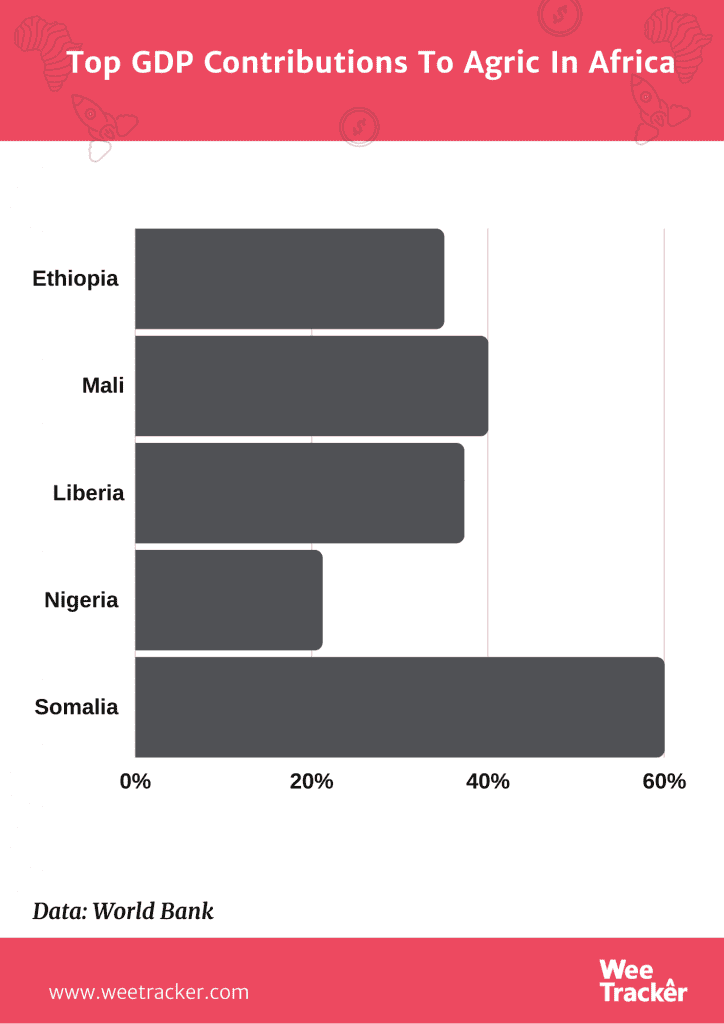Africa Could Lose USD 4.8 Bn In Crop Exports Due To Pandemic Disruptions

From shaking Nigeria’s cocoa industry to making slits in Southern Africa’s tobacco industry, Covid-19’s impact on agriculture is already obvious.
Tax consultancy firm McKinsey’s update on the pandemic disruption shows that the continent may loose USD 4.8 Bn in crop exports, affecting the livelihoods of 10 million farmers.
Agriculture is a dominant sector in the region’s economy, contributing, on average, 23 percent to Sub-Saharan Africa’s Gross Domestic Product (GDP), according to the World Bank. The sector is also considered as the one of its largest sources of employment.
The continent’s agricultural exports, in annual totals, are worth between USD 35 Bn and USD 40 Bn. Losing as much much as USD 4.8 Bn would be a heavy blow for Africa’s economy, considering that there is already a looming food insecurity crisis brought on by the pandemic.
Should this plunge be realized, the African countries who depend more on agricultue for their GDP growth would be the first ones on the chopping block.

Cocoa is a main crop Africa exports, as it produces about 75 percent of the world’s cocoa beans. According to McKinsey, a fall in demand for chocolate and the resulting decline in prices could reduce cocoa exports by as much as USD 2 Bn. Coffee, a crop that supports 6.6 million jobs mainly in East Africa, could go down by about USD 200 Mn, the firm said.
The report also points out that between USD 500 Mn and USD 2 Mn could be lost in the export of fruits, vegetables and nuts from countries leading in those areas, like South Africa. Meanwhile, between USD 400 Mn and USD 600 Mn in revenue from flower exports may be lost.
“Disruptions ranging from canceled flights to the closure of chocolate factories in Europe have limited exports of crops ranging from nuts to roses, according to the consultancy firm. Livelihoods will be affected through “job loss or price reductions,” McKinsey said.
Before the coronavirus outbreak, food insecurity was already a serious issues throughout Sub-Saharan Africa, as 239 million people in the region were undernourished as of 2018.
The African Continental Free Trade Agreement (AfCFTA) is believed to assist Africa in boosting its internal trade, within which crop produces can be circulated, all in an effort to reduce its reliance to global supply chains. The agreement, nonetheless, has been postponed due to the current health emergency.